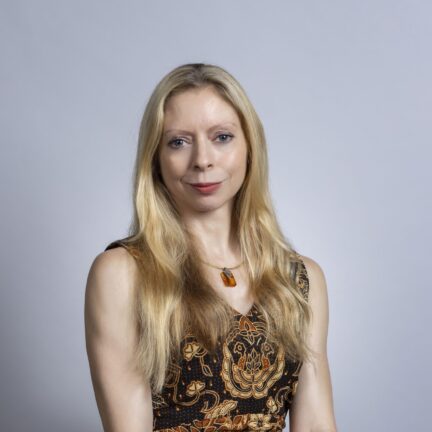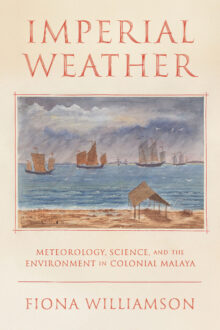
Fiona Williamson
Fiona Williamson is professor of environmental history in the College of Integrative Studies at Singapore Management University. She is a fellow of the Royal Historical Society and copresident of the International Commission for the History of Meteorology.
Imperial Weather
Meteorology, Science, and the Environment in Colonial Malaya
Tropical weather in colonial Malaya presented an unknown atmosphere that manifested in extremes and uncertainties. From 1840 to 1940, the Indigenous landscapes of Singapore and Penang Islands were altered in ways that will never be reclaimed, the natural ecology of much of the peninsula forever changed by the British colonial government. With this book, Fiona Williamson revisits the fraught relationship between climate, weather science, and empire within the Straits Settlements in the long nineteenth century. Her book examines official and scientific responses to local weathers within the multicultural ports and peripheries of Singapore and George Town, Malaysia. The challenges of creating a livable environment in tropical conditions, she explains, frequently pushed the colonial government beyond its capacities, and solutions often came at the expense of nature, which, ironically, made managing the weather more problematic. Imperial Weather offers a deep exploration of various official attempts to understand and apply structure to the previously unknown or uncontrollable through knowledge gathering, institutionalization, and technological and infrastructural change. Drawing from the history of science—especially the history of meteorology—and environmental history, it explores the multiple interests, capacities, and capabilities at play, including the state of scientific knowledge and the economy, funding, and importantly, socioenvironmental needs and practicalities.

